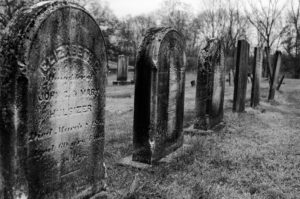You have no items in your cart. Want to get some nice things?
Go shopping She was dead before she hit the ground. That’s what people are saying. Before she hit the ground, she was dead. And they’re saying it’s a blessing that she was. Dead, before she hit the ground. I think and think about this. That she went from being alive to being dead during one of the seconds after the car rammed into her bare knees and flung her all the way up to Mrs Boylan’s flat above the newsagents. She may have still been alive when she floated by the kitchen window and, if she was, maybe she looked through it and saw the old woman standing there, idling next to an unboiled kettle. Or maybe she didn’t die until after she’d peaked, during her descent, and her brown, straggly hair flowed upwards, cradling her head like storks carry babies. Hard to say. Either way, last Wednesday afternoon, life left her body – Lynette Price’s body – to plummet, alone, onto the cracked pavement outside Boylan’s News and Booze. Before the car hit her, we were both thirteen. Now, only I am.
She was dead before she hit the ground. That’s what people are saying. Before she hit the ground, she was dead. And they’re saying it’s a blessing that she was. Dead, before she hit the ground. I think and think about this. That she went from being alive to being dead during one of the seconds after the car rammed into her bare knees and flung her all the way up to Mrs Boylan’s flat above the newsagents. She may have still been alive when she floated by the kitchen window and, if she was, maybe she looked through it and saw the old woman standing there, idling next to an unboiled kettle. Or maybe she didn’t die until after she’d peaked, during her descent, and her brown, straggly hair flowed upwards, cradling her head like storks carry babies. Hard to say. Either way, last Wednesday afternoon, life left her body – Lynette Price’s body – to plummet, alone, onto the cracked pavement outside Boylan’s News and Booze. Before the car hit her, we were both thirteen. Now, only I am.
I saw her last Wednesday. Lynette Price. Like I’d seen her on hundreds and thousands of Wednesdays, and all the other days in between. At school, on the bus to and from school, on the grey, slanted streets of identical houses. But I saw her that day. That’s important. Being with someone during their last hours. Even if you don’t know it at the time.
Wednesday. Her death-day. Sister Assumpta had swooped down on Lynette Price like a demented crow, squawking about yet another homework she’d failed to do, this one on Pythagoras’ Theorem. Girls who don’t do their homework, girls like Lynette Price, turn their backs on the Lord and embrace the twin evils of Sloth and Lust, and end up jobless, unwed mothers. I was just sitting there, watching the long white hair on Sister Assumpta’s jutting chin waft closer and closer to Lynette Price’s cheek. Sullen, unwashed. She was staring straight ahead. Probably deaf to the old cartoon nun and her lunatic rants, just like the rest of us. But she shrieked on, did Sister Assumpta.
Remember the Psalm, you filthy girl. The Lord is a vengeful God and will punish those who turn away from his love.
Now, I know I couldn’t see her face, Lynette Price’s, not fully, not from where I was sitting. But when I think about this moment, I see all of her. From a high angle, as if I’m standing over her. I see a straight, colourless line of scalp dividing puddle-brown hair, an oily forehead pitted with little red and white peaks. Then I remember her blink slowly, and roll her grey eyeballs towards Sister Assumpta’s grizzly chin, and calmly tell her that she, Lynette Price, didn’t give a shit about Pythagoras or his Theorem, and the stupid Greek bastard could go fuck himself up the hypotenuse for all she cared. She must’ve known then, that she’d be dead in a few hours.

Thursday. There’s a makeshift shrine in our school’s front entrance. Lynette Price’s photo surrounded by white plastic flowers in spongy, green styrofoam, and a white index card with her name written on it using one of those calligraphy pens.
November 4th, 1979 – October 27th, 1992
The photo is her school one, snapped too early or too late, between smiles. It’s the same one they used on the news. Because Lynnette Price has been killed by Joyriders. The Scourge of our Community, the Police Chief says. Tossed in the air like a ragdoll by a speeding, stolen Ford Escort. A few girls circle the shrine and try to cry. This is good of them, I think. They’re taken to the Nurse’s office. Rumour has it there are cookies and tea there.
Friday. The police tape and shattered glass are gone from outside Boylan’s News and Booze. Susanne Leach says you can still see blood stains in the cracks of the pavement, but then Susanne Leach also says she started her period when she was eleven and that she’s given blowjobs to at least three different boys. I still look, though.
Tossed into the air like a ragdoll.
Doreen stands behind the counter of Boylan’s News and Booze and says this over and over to every customer. Because Doreen saw it happen, right there, outside her shop. Doreen is the colour of curdled milk and her lipless mouth is tight and sour.
Like a ragdoll, she was. Tossed into the air. Dead before she hit the ground.
Mrs Moran is leaning on the counter, greedy, listening. I’m dilly-dallying and lollygagging, hovering between Milky Way and Mars, hoping to learn more. About the moment life left her. The wispy moment Lynette Price was, and then wasn’t. But Doreen has nothing new to teach me. Tossed. Air. Dead. Ground.
And that woman she lived with. Isn’t her real mum, y’know.
No. An Aunty, apparently. S’what I heard, anyway.
Mrs Moran’s hooped earrings rattle, her eyelashes are thickly coated and clotted with black. Mrs Moran is a Cougar, though this term isn’t yet used for women like her. There’s lipstick on her teeth.
The dad?
Doreen’s face puckers. She puts her hand to her throat.
No one knows who he is, so … y’know.
Well then, what d’you expect?
Dead before she hit the ground.
There. On that ground, on that concrete slab. Pavement I’ve walked on or past a million times to buy chocolate, milk, magazines where you can read words like menstruation and orgasm. Now this spot just outside the door of Boylan’s News and Booze is the site of Lynette Price’s death. But I didn’t know that until last Wednesday. I walk towards the open door and conjure a scene easily. She’s standing there, and then her body is whipped by a speeding, stolen blue Ford Escort, so hard that all air is expelled from cells, teeth clamp down and sever the tongue, organs ricochet like soggy pinballs, the heart lodges where the liver should be, and the left kidney splatters like a soggy apple against the walls of skin that hold her together. In this scene, my scene, it happens slowly and there’s music.
Oi! You need to pay for that chocolate, Missy!
Milky Way. Not that it matters; I’ll be throwing it up later.
I realise, as I leave, that if I’d dawdled like this on that day, I would’ve seen it happen. And if I’d seen it happen, maybe the ache in my shoulders, my elbows, my neck – the feeling that they’re about to rip, or pop from being stretched too far – maybe that would… But I hadn’t seen it. Because Mum makes me go with her to see Nana at the Home on Wednesdays and Sundays. So now all I can do is imagine her death, Lynette Price’s. Which I do. All the time.
Mum? If you die with your eyes open, can you still see for a bit? Mum? Can you…?
What?
Nothing.
Sunday. Nana’s eyes have a new milky-grey film over them, like fish eyes. She’s been half propped against a pillow but her potato-coloured head lolls forward, like it is too heavy for her neck. She can’t talk. She doesn’t even know we’re here. So me and Mum just sit by her bed and sweat in the thick gas fire heat.
Mum, y’know when you … die? Do you … do you think you know when you … when your soul leaves…?
Jesus! I don’t know, do I? I’m not the fuckin’ Pope!
The nurse tucking in bedsheets gives Mum a dirty look for saying the words Pope and Jesus and Fuck in the same breath, but Mum’s rubbing her temples and her eyes are screwed shut so she doesn’t notice. In the other bed, a woman with skin like a withered balloon lies in her own shit and looks at the telly. Two Down’s-syndrome teenagers are on screen, dancing clumsily to “He Ain’t Heavy, He’s My Brother” and people in the audience are crying. The nurse nods at the screen.
Lovely isn’t it?
The boy with Down’s syndrome wobbles the girl with Down’s syndrome above his head. The nurse dabs an invisible tear with the back of her hand. She sniffs.
Ah, will you look at that…
She leaves and I pretend she hasn’t smelt the shit coming from the other bed. Nana grips my elbow, and makes scared, pleading noises at someone over my shoulder who isn’t there. I move her hand away.
Wednesday again. Our class gets to go to Lynette Price’s funeral, but only by bringing a signed permission slip and fifty pence for the bus. Everyone does because we’ll miss double PE and there’ll be News people there because of the Joyrider thing. Noisy snaps and fuzzy microphones. A man we recognize from the telly with his finger in his ear. Some girls rubbed their eyes red on the bus, and now they link arms. The coffin comes out and everyone goes quiet because you have to be around dead people. And Lynette Price is a dead person. A person. Who’s dead. Lynette is. Lynette is not.
The box is white and small, and floats silently on black shoulders, a river of black reeds. Inevitably, it reaches the door, then the altar where Father Tynan slurs words he’s said hundreds of times, without knowing that this is the fourth-to-last time he will do so before someone else mumbles the same words over his own pine box. The Aunty/Mum-Lady stumbles and a man takes her by the elbow and guides her down the aisle. We say prayers about Eternally Resting in Perpetual Light. World Without End. Amen.
Her poor little body must be really mangled for a closed casket.

Our English teacher, Mrs Feany, says this to Sister Assumpta, who doesn’t reply. In fact, she’s strangely still. None of the usual looney-tunes-frenzy. I imagine she’s been secretly replaced by a plaster likeness, like the one her dry lashless eyes stare at. Nearly naked Jesus, all bones, hair, and blood, arms suspended, Y-shaped. Obtuse angles, I think. I wonder if this Jesus is dying, or already dead? Suffering? Or suffered? Is it all over? Maybe it is over, but he’s still suffering. Sister Assumpta’s eyes seem to say so.
It starts to rain and I hear Mrs Feany say that means Lynette Price’s soul is in heaven and she is happy.
Thursday. Mrs Feany reads that poem about two sets of footprints in the sand and when there’s only one, that’s when Jesus is carrying us. Then she shows us a recording of the same two Down’s syndrome kids, this time dancing to “What a Wonderful World”.
See girls, if we look, we can find beauty even in the darkest, most surprising places.
Then she makes us write our feelings in a poem which must include at least two metaphors, three similes and lots of alliteration.
Friday. The shrine is gone.
Then lots of days follow that one. Wednesdays and Thursdays, and the others over and over. World Without End, Amen.
I dream of Lynette Price. Of her death. Not just when I am asleep, either. I crave it sometimes. I look forward to being alone with it so I can experiment, work out its puzzle, solve the problem. Sometimes she’s dead before she hits the ground and I hear bones crunch. Then there’s a close up of her dead face, open-eyed and confused. Other times she sees the car surging at her and she understands she’s about to die. I try to feel her fear. Sometimes I am her and I see Mrs Boylan through the dirty window of her flat watching a kettle that won’t boil, and I wonder why I’m floating, and then I look down and I remember that my body is going to slam against the concrete below and the pain will be incomprehensible. So I decide to die there, in the air, before it hurts, before I hit the ground. So I drift, or sink, or … something … leaving only a body that looks like mine to pound into the earth. Only sometimes the earth’s surface is water, and I splashdown, wet and cold and alive. I don’t sleep much. Or eat. They send for a doctor. I try to tell him about the pains in my joints. He says there’s nothing wrong.
Another Wednesday, and Sister Assumpta leads prayers before class. Eyes closed.
Lord, we ask You to guide us, Your poor banished children of Eve, as we try our best to understand the mysteries of Your universe. And feel Your eternal, divine love, in times of triumph and sorrow. Amen.
I’m exhausted and I feel the sudden weight of all the Wednesdays to come and I worry that I won’t be able to survive them. Because my imagination has failed me, and I don’t have control of anything, not even the arm rising above my head, or my voice. Sister Assumpta nods in my direction and the hinges of my jaw loosen, my eye rims are red and there’s blood in my ears.
How come God didn’t love Lynette Price, sister?
A whoosh of inhaled breaths and some embarrassed chuckles, but Sister Assumpta doesn’t fly at me like the deranged penguin she usually is. She’s still, staring, trance-like, above my head. Her voice is metallic, like a kid doing an impression of a robot.
There is nothing that separates His love from us. Not even the death of His eternally begotten Son, whom He sent into the world to suffer and die, so that we who believe may have Life Eternal. He is unceasing. Like the square of the hypotenuse is always equal the sum of the squares on the other two sides, so God’s love is constant.
Then she gives us a test and I get most of it wrong.
Sunday. The bed next to Nana’s is empty. Mum says she’s making a phone call, but I know she’s sneaking a smoke. Nana’s eyes are closed and I wonder when she’ll die. In the last type of dream, Lynette is flung into the air and I’m there with her. We sail upwards. Up and up. Above Mrs Boylan’s flat, over the streets, the damp roofs with missing shingles, aerials, satellite dishes and chimney stacks. All become faint under wispy clouds. It is cool and clean up here and Lynette and I hover like skydivers. We both know she is about to die. Her face is one smooth colour, blank, her hair floats up in waves. And at the height of her arc, she pitches her arms forward, her body swoops into an elegant swan dive, and I watch her glide towards the grey below. Somehow, that’s the best version.
The heavy heat of the room makes me sleepy, so I sit on Nana’s bed, lean my head on her shoulder. Silently, I tell her not to worry.

About Caroline Greco
Originally from Liverpool, Caroline Greco lives and writes in the Chicago area. Her work has appeared in Litro, 34th Parallel, and STORGY among others.



